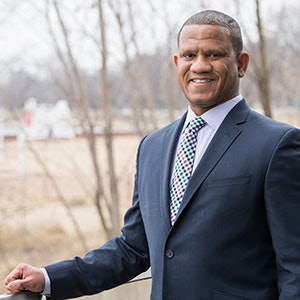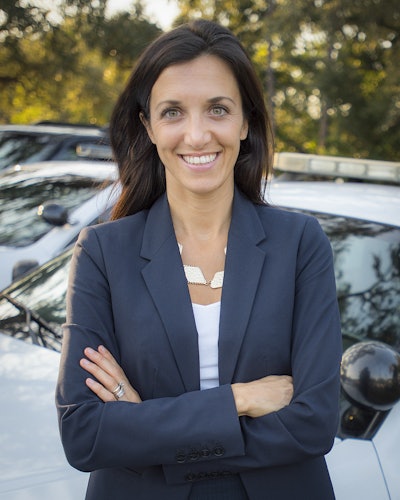Following the death of George Floyd last May, administrators at colleges and universities scrambled to issue statements condemning the murder and vowing that they would use the incident as a moment to address systemic racism on their own campuses.
Some institutions decided to establish social justice centers, endow scholarships for minority students and to set aside funds to aggressively court underrepresented faculty. Others like San Diego State University (SDSU) required that the study of race relations be required for future police officers, prison guards and other criminal justice students looking to earn a degree.
“If you look at any aspect of the criminal justice system, you’re going to see racial disparities,” Dr. Roddrick Colvin, a professor at SDSU said at the time. “Now, it’s time to do something about it. It’s time to advocate and argue for and develop policies that are really going to address this head-on.”
These kind of changes—which some say were long overdue—are encouraging to some, but there is a growing recognition that as time passes, some of the longstanding promises made by institutional leaders will likely fade away. That certainly was the case in 2014 when a wave of protests erupted on college campuses following the shooting death of Michael Brown in Ferguson, Missouri.
But the murder of Floyd led to the confrontation of race and racism within the higher education sector in a way that hadn’t been experienced before. For institutions such as Northwestern University, remaining silent wasn’t an option.
 Dr. Alvin Bernard Tillery, Jr.
Dr. Alvin Bernard Tillery, Jr.“We now get internal memos from our provost about incidents that happen in the news, like the assaults on critical race theory or the Asian American hate crimes,” said Dr. Alvin B. Tillery, Jr., an associate professor of political science and director of the Northwestern’s Center for the Study of Diversity and Democracy. “We are getting these statements and that is positive. And I want to give credit where credit is due.”
To advance racial equity efforts, Northwestern donated about $1.5 million to support activities in the cities of Chicago and nearby Evanston, Illinois. Other aspects of the university’s 10 commitments to social justice and inclusion included faculty diversity training and the renovation of the Black House.
Unlike some other institutions, Tillery said that Northwestern administrators have missed addressing opportunities to address curricular reform and the tenure system.
“The question that they need to ask themselves is, ‘are universities going to invest in a more diverse faculty to match the more diverse student body that’s coming down the pipeline already,’” he said.
Recognizing the “need for change” last summer, the University of South Florida (USF) established the Center for Justice Research and Policy to study criminal and social justice issues.
The center’s first project was in collaboration with Tampa Bay Mayor Jane Castor—who has championed reforming the city’s police department. To evaluate Tampa Bay residents’ experiences and feelings about their local police, Dr. Bryanna Fox, an associate professor in the Department of Criminology at USF, worked with 12 graduate students to conduct a community-wide survey.
In discussions with community members, there was an overall consensus that they were being overpoliced and under policed simultaneously. While individuals experienced being stopped for minor offenses, other serious crimes remained unsolved or prevented. Additionally, a lack of transparency and accountability around police programs and methods and policies have created feelings of mistrust.
“One of the things that we heard them saying was, ‘if I screw up in my job, I have to be held accountable,’” said Fox, who is also a faculty affiliate to the Florida Mental Health Institute at USF. “‘I don’t get to keep my job or I’m disciplined.’ They said they just didn’t see the same thing happening with police departments.”
Other projects within the center focus on the criminal justice system.
As part of a $1.2 million grant from the National Institute of Justice, individuals in jail are paired with a case manager to provide them with needed support and treatment as a way to reduce recidivism.
 Dr. Bryanna Fox
Dr. Bryanna Fox“We want to show [students] why we’re doing this and understand the people that are being impacted,” said Fox. “But also understand the criminal justice system and what it’s like being a police officer, a mayor or state attorney,” she added.
After a number of theaters were called out for perpetuating discriminatory practices, Corey Mitchell, head of the musical theater department at Northwest School of the Arts in Charlotte, N.C., sought to address inequities within the performing arts community.
He created the Theatre Gap Initiative—a gap year program for high school graduates looking to pursue a Bachelor of Fine Arts.
“There are a lot of things out there that help give advantages to students that come from privilege,” said Mitchell, who is also an inaugural Tony Award recipient for Excellence in Theatre Education.
From August until March, participants are paired with college professor mentors and introduced to the process of auditions. All content is focused on the experiences of actors of color.
Additionally, through a partnership with Central Piedmont Community College, participants have the opportunity to earn college credit and use resources on campus. Wanting to keep the program small, Mitchell expects a maximum of 24 students.
He also emphasized the importance of continuing these conversations to make changes at colleges and universities.
Though this era of racial reckoning has created a platform for more voices to be heard, the lives of students and faculty of color at predominately White campuses have not been made easier, according to Tillery.
“I think, again, Mr. Trump making diversity training and Black Lives Matter and all these things the focal point for hate in his campaign has really shifted the narrative and that has stayed around a lot longer than his campaign did,” he added. “I still think there’s a ton of work that we need to do.”
Dr. Michael Scott, clinical professor at Arizona State University’s School of Criminology and Criminal Justice said that colleges and universities have to be vigilant if they’re going to truly grapple with longstanding inequities and that scholars like him, should be at the forefront in addressing larger racial issues.
“Those of us who are policing scholars would be well-advised to dedicate at least some of our time and energy to thinking about the racial implications of all kinds of police practices and policies, and give a fresh look to ways in which routine and traditional policing has exacerbated tensions between police and minority communities, especially African-American communities,” he said. Doing so, he noted, “will give fresh thought to new and better ways in which police might be able to carry out their mission without exacerbating those strained and untrusting relationships.”
Arrman Kyaw and Jessica Ruf contributed to this article.















